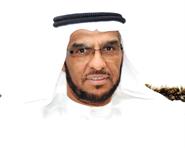Date : 01/04/2015

DOHA, April 1 (KUNA) -- Quality of education services offered to the disabled is the main topic of two Kuwaiti working papers offered for discussions during the 15th Forum of the Gulf Disability Society held in Doha.
The first paper gives an account of the Public Authority for the Disabled (PAD) expertise in promoting criteria for endorsing and guaranteeing quality of education institutions for the disabled, PAD Deputy Director General Rashed Al-Sahel told KUNA.
It aims to transfer Kuwait's experience in the field to researchers and specialists from the Gulf Cooperation Council (GCC) taking part in the Doha Forum, he added.
In addition to promoting services to the disabled, the paper also deals with categorizing the education institutions in line with PAD specifications and developing the human element involved in the process as well as monitoring such bodies working under the Authority's umbrella, Al-Sahel added.
Services have to be extended to all the disabled, the paper stressed.
The second paper, submitted by the Kuwait Dyslexia Association, tackles quality of services provided to people with special and the related financial aspects.
This includes government spending on education and the outcome besides the impact of learning difficulties, Association chairman of Mohammad Yusuf Al-Qattami told KUNA.
According to the paper, Dyslexia is a global phenomenon, mounting to 10-20 percent worldwide.
Al-Qattami noted that the paper blames the outdated traditional view of education, especially by economists, as non-profiting. It is better to lavish capital on economic projects, agricultural and industrial, with fast earnings.
Up to 11.4 percent of Kuwait's budget for the FY 2014-2015 has been allocated for education, the paper said.
It also referred to recommendations by a World Bank (WB) team that visited the country in 2012, urging a comprehensive development of education indices as well as taking part in the world's major assessment programs. (end)
nnd.msa